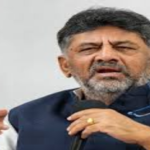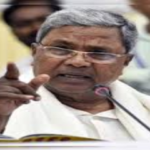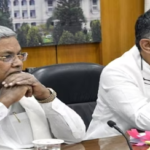“Nirmala Sitharaman : Pioneering Pathways in Politics and Finance”

Nirmala Sitharaman is an Indian politician and economist who has played a significant role in the country’s politics and economy. Born on August 18, 1959, in Madurai, Tamil Nadu, she has been associated with the Bharatiya Janata Party (BJP) and is a member of the Rajya Sabha (Upper House of Parliament) representing Karnataka.
Nirmala Sitharaman has an impressive educational background. She pursued her Bachelor’s degree in Economics from Seethalakshmi Ramaswamy College, Tiruchirapalli, and later completed her Master’s in Economics from Jawaharlal Nehru University (JNU) in New Delhi. After completing her studies, she worked as a salesgirl at a home decor store and later joined PricewaterhouseCoopers (PwC) as a research assistant. The Jawaharlal Nehru University conferred her the Distinguished Alumni Award in 2019 .Forbes Magazine has ranked her 34th among the 100 most powerful women in the world in 2019.
Nirmala Sitharaman joined the BJP in 2006 and quickly rose through the ranks due to her knowledge and dedication to the party’s ideology. She held various positions within the party and became one of its prominent spokespersons, effectively representing the party’s stance on various national issues.
In May 2014, Nirmala Sitharaman was appointed as the Minister of State (Independent Charge) for Commerce and Industry, marking her entry into the Union Cabinet. In this role, she played a crucial part in shaping India’s trade policies and promoting ease of doing business.
In September 2017, became the Minister of Defence, making her the second woman to hold this prestigious portfolio in India after Indira Gandhi. During her tenure as the Defence Minister, she focused on modernizing and strengthening the country’s armed forces and streamlining defense procurement processes. She also played a vital role in implementing policies to support ‘Make in India’ in the defense sector.
Nirmala Sitharaman has been actively involved in India’s economic policymaking. As Finance Minister, she presented the Union Budget for the fiscal years 2019-2020, 2020-2021, 2021-2022, and 2022-2023. Her budgets aimed at boosting economic growth, creating jobs, and promoting infrastructure development.
During her tenure, she introduced several significant reforms and initiatives, including the introduction of the Goods and Services Tax (GST), which aimed to streamline India’s complex taxation system. She also announced various relief packages to support the economy during the COVID-19 pandemic.
Nirmala Sitharaman’s tenure as Finance Minister was marked by some economic challenges, including a slowdown in economic growth and rising unemployment. Critics also raised concerns over the handling of the economy and the impact of demonetization and GST on businesses.
Nirmala Sitharaman joined the BJP in 2006 and became an active member of the party. She quickly rose through the ranks and served in various party positions, showcasing her organizational skills and ideological alignment. She emerged as a prominent spokesperson for the BJP, representing the party on various national issues. She effectively articulated the party’s stance and became known for her articulate speeches and media presence.
In May 2014, She was appointed as the Minister of State (Independent Charge) for Commerce and Industry in the Narendra Modi-led government. In this role, she played a crucial role in promoting trade and commerce, simplifying procedures, and attracting foreign investments.
In September 2017, Sitharaman was elevated to the position of Minister of Defence, becoming the first full-time female Defense Minister of India after Indira Gandhi. During her tenure, she focused on modernizing the armed forces, enhancing defense capabilities, and implementing reforms in defense procurement.
In May 2019, Nirmala Sitharaman was appointed as the Minister of Finance and Corporate Affairs, becoming the first full-time female Finance Minister of India. She presented several Union Budgets, introduced economic reforms, and played a crucial role in policymaking to stimulate economic growth and development.
As Finance Minister, Sitharaman introduced various key reforms and initiatives to boost economic growth and address pressing issues. Some notable initiatives include the introduction of the Goods and Services Tax (GST), the Atmanirbhar Bharat (Self-Reliant India) campaign, and the Production-Linked Incentive (PLI) scheme to boost manufacturing. During her tenure as Finance Minister, Nirmala Sitharaman faced challenges such as a slowdown in economic growth, unemployment, and criticism over the handling of certain policies. Critics raised concerns over the impact of demonetization, GST implementation, and the effectiveness of some economic measures.
Nirmala Sitharaman continues to be an influential figure within the BJP and the government. She remains actively involved in shaping economic policies, representing the party’s interests, and playing a crucial role in decision-making processes. She has made notable contributions to the empowerment and representation of women in various spheres. Here are some key aspects of her contribution to women:
By becoming the first full-time female Defense Minister and Finance Minister of India, Nirmala Sitharaman shattered gender barriers in traditionally male-dominated fields. Her appointments serve as a significant inspiration for women aspiring to leadership positions in politics and administration.
As Finance Minister, Sitharaman introduced policy initiatives to empower women and enhance their participation in the workforce. The budgetary allocations and schemes she introduced aimed to support women entrepreneurs, provide skill development opportunities, and enhance women’s financial inclusion.
Sitharaman has emphasized the role of women entrepreneurs in India’s economic growth and has taken steps to promote entrepreneurship among women. She launched the Stand-Up India initiative, which aims to provide loans and support to women and marginalized communities for starting their own businesses.
Under Sitharaman’s leadership as Finance Minister, there has been increased emphasis on gender-responsive budgeting. Gender budgeting is an approach that analyzes how government budgets impact women and ensures that resources are allocated to address gender-specific needs and promote gender equality.
Sitharaman has actively advocated for greater representation and participation of women in decision-making processes. She has emphasized the need for more women in leadership positions, both in the political arena and corporate sector, to ensure diverse perspectives and equal representation.
Sitharaman has been vocal about the importance of women’s safety and security. As the Defense Minister, she prioritized the well-being of women in the armed forces and worked towards implementing measures to create a safer environment for women within the defense establishment.
By holding prominent ministerial positions and serving as a role model, Nirmala Sitharaman has inspired countless women to pursue careers in politics, governance, and leadership roles. Her success story serves as a beacon of hope and encouragement for women across the country.
It’s worth noting that while Sitharaman has made significant contributions to the advancement of women’s rights and empowerment, there is always more work to be done to achieve full gender equality.
Nirmala Sitharaman’s contributions as the Finance Minister of India have been focused on shaping the country’s economic policies, promoting growth, and implementing reforms. Here are some key contributions she made during her tenure:
Sitharaman presented several Union Budgets during her time as Finance Minister. Her budgets aimed at boosting economic growth, addressing key sectors, and promoting inclusive development. She introduced various reform measures and policy initiatives to support economic recovery and sustainable development.
One of the significant contributions of Sitharaman as Finance Minister was her involvement in the implementation and reform of the Goods and Services Tax (GST). She played a crucial role in addressing issues and streamlining the GST structure to make it more efficient and taxpayer-friendly.
In response to the COVID-19 pandemic, Sitharaman launched the Atmanirbhar Bharat (Self-Reliant India) campaign. It aimed to promote self-reliance, boost domestic manufacturing, attract investments, and create employment opportunities. Several economic stimulus packages were announced under this initiative to support various sectors affected by the pandemic.
Sitharaman has been a strong advocate for infrastructure development in India. She focused on enhancing physical infrastructure, including highways, railways, airports, and digital infrastructure. Her budgets allocated significant funds to infrastructure projects to improve connectivity and boost economic growth.
Sitharaman introduced reforms to strengthen the financial sector and address issues such as non-performing assets (NPAs) and liquidity constraints. She initiated the amalgamation of several public sector banks to create stronger and more efficient institutions. Steps were also taken to enhance the governance and transparency of the banking sector.
As Finance Minister, Sitharaman aimed to simplify the tax structure and ease the burden on taxpayers. She undertook measures to improve tax administration, reduce compliance requirements, and provide relief to small and medium-sized enterprises (SMEs). Efforts were also made to improve the ease of doing business in India.
Sitharaman focused on boosting the agriculture and rural sectors through various policy measures. Budgetary allocations were made to support farmers, enhance agricultural infrastructure, promote rural development, and improve rural livelihoods.
Nirmala Sitharaman has had a notable career in Indian politics and has held key ministerial positions, including Minister of State (Independent Charge) for Commerce and Industry, Minister of Defence, and Finance Minister. She has made significant contributions to shaping economic policies, implementing reforms, and promoting inclusive growth.
As Finance Minister, Sitharaman introduced various initiatives such as the Goods and Services Tax (GST), the Atmanirbhar Bharat campaign, and focused on infrastructure development, financial sector reforms, and support for agriculture and rural economy. However, her tenure was not without challenges, and she faced criticism for certain policy decisions and the handling of economic issues.









